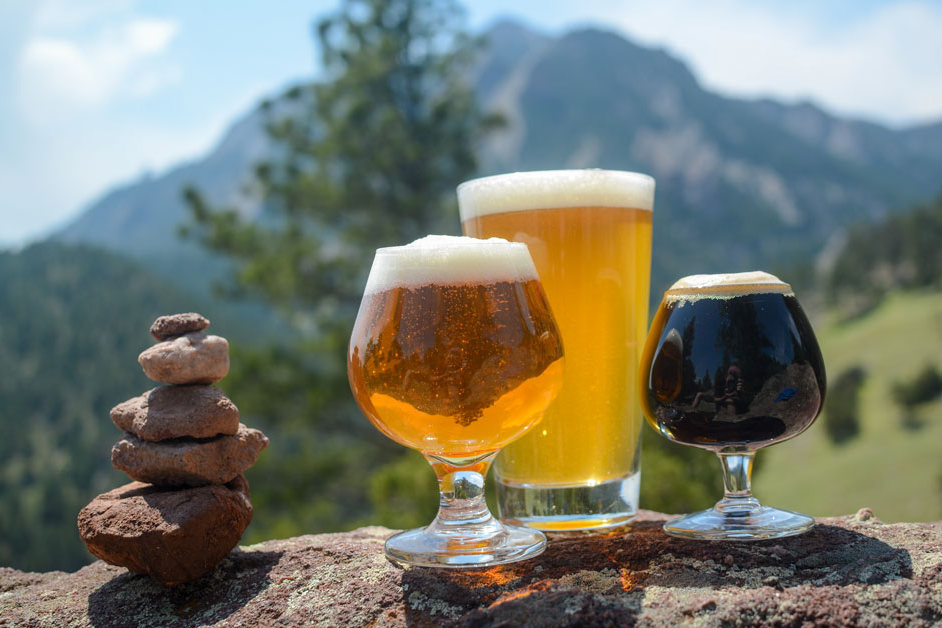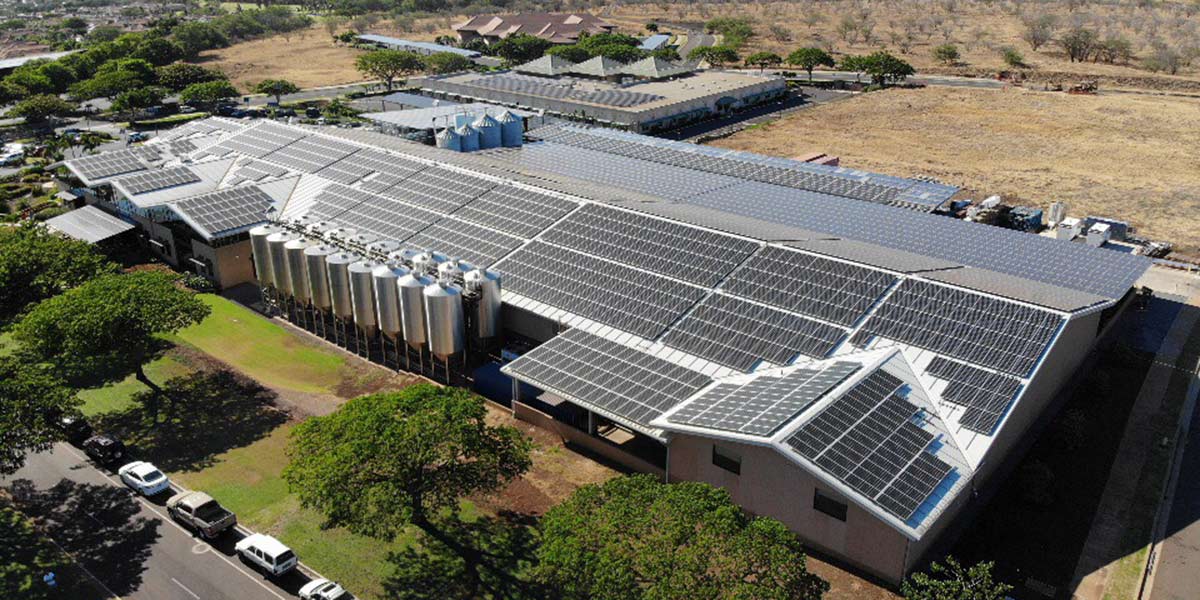Lotte Peplow, the Brewers Association’s American craft beer ambassador for Europe, looks at what the US craft brewing industry is doing to become more sustainable
Photograph: Nic Crilly-Hargrave

With World Environment Day coming up on 5th June, the brewing industry is all too aware of the need to conserve energy and become more sustainable and environmentally responsible.
The American craft beer industry emits about half a billion metric tonnes of carbon dioxide into the atmosphere annually. The world-class quality, full-flavoured, expertly brewed American craft beer we have come to love and enjoy requires its fair share of natural resources and creates waste materials and by-products in equal measure.

Consequently, the majority of small and independent American craft breweries are acutely aware of their environmental footprint and are constantly developing new and creative ways of becoming more sustainable, more energy efficient and more environmentally responsible. Here are just a few examples
of both large and small-scale initiatives taking place across America.
Sierra Nevada Brewing Co is the third largest small and independent American craft brewer in the States and prides itself on its approach to sustainability, regularly passing up the chance to brew more easily and cheaply. At the main site in Chico, California, there are three and a half football fields worth of solar panels, which work in tandem with two megawatts of Capstone microturbines to provide more than 90% of the electricity needed to run the brewery. Waste heat is captured and used to make steam and hot water for the brewing process.
Instead of venting naturally produced CO2 from fermentation, Sierra Nevada recovers it, cleans it and sends it back into the brewery to pressure tanks and assist in packaging. Recovered CO2 contains less oxygen than commercial CO2, improving the quality of the beer.
Water conservation is crucial in drought-stricken California and Sierra Nevada has eliminated water-based lubricants on the bottling and kegging lines, which not only reduces water consumption but waste water heading to the on-site treatment plant.
The brewery recovers water used to rinse bottles prior to filling and uses it in vacuum pumps that dispense beer into bottles, saving about 2.5m gallons of water annually. This environmental stewardship is at the forefront of Sierra Nevada’s core values and as important as making great beer.
Mandi McKay, director of social responsibility at Sierra Nevada Brewing Co, said: “We have excelled at the philosophy of closed loop sustainability and it’s proven to be a wonderful operating strategy. We’ve shown that waste coming out of one process such as heat, water, or CO2 recovery, can become a resource for something else.
Leading by example
“We’re very energy intensive in the brewing industry. We make a lot of heat and we use a lot of heat, so we’ve gone all in on recovering heat and steam, and that closed loop philosophy has been a guiding
principle for us. At Sierra Nevada we do a lot more than just brew amazing beer, and the same commitment to continuous improvement and zero waste runs across the board.
“We’ve always been interested in connecting ourselves with our supply chain — early on we planted our own hop field — and that comes from the fundamental belief that everything is connected and our impact on the environment is impacting ourselves. In the future we’re hoping to look at a broader strategy outside our four walls, and that could be through advocacy, partnerships, or the supply chain.”
In 2019 Maui Brewing Co in Kihei, Hawaii, became the first completely off-grid brewery in the entire United States. Solar panels cover the roof of the 85,000 sq ft production facility and a recovery system to capture and reclaim CO2 is in place. These efforts, plus solar energy, will reduce CO2 emissions by more than 2 million pounds per year.
“As we grew successful, we saw the opportunity to invest in sustainable energy and lead by example in sustainable manufacturing,” said chief executive and co-founder, Garrett Marrero. “We are focused on authenticity, and that means using local ingredients, being innovative, and being highly sustainable.
“We produce over 90% of our energy on site through solar, and the remainder comes through bio diesel generators, along with a measure of solar thermal for water heat and steam so we have a low carbon footprint. We will continue to develop initiatives that not only help the company but also inspire our community.”
But it’s not simply innovative and creative beers that American craft breweries excel at. They are also developing highly creative uses for brewing industry waste products.

Solar panels at Maui Brewing Co. Photograph: Brewers Association
Denver Beer Co, based in Denver, Colorado, is capturing CO2 generated during beer’s fermentation process and re-using it to stimulate marijuana plant growth (legal in Colorado). Instead of venting carbon dioxide from the fermentation tanks into the atmosphere, it is routed into a pressurising foam
trap and from there into a purifying box that removes unwanted gases, acids, aromas, and volatile organic compounds before chilling and converting into a liquid. Once stored it can be transported to the cannabis cultivation centre, converted back into a gas, and pumped into a 2,400 sq ft grow room to provide supplemental carbon dioxide for the cannabis plants to aid photosynthesis. This speeds up the plant’s life cycle when grown indoors.
In addition to its CO2 capture program, Denver Beer Co converted its Canworks brewing and production
facility to 100% solar power in 2018. The brewery also recently purchased a fleet of electric vehicles for
its sales team, which are charged using the 258 kW solar array installed on their roof.
Ska Brewing Co, in Durango, Colorado, has gone one step further. In addition to installing solar panels that generate enough energy to brew approximately 545,000 pints each year, the company also insulates the brewery’s walls with old blue jeans, the bar and tables are made from bowling lanes, and the grass and flowers receive recycled water! What’s more, Ska is reusing old cans by re-labelling them and sending them out to market.
Sustainability is a core value for the vast majority of American craft brewers. The pursuit of quality is another, borne out by the number of medals and top honours American craft beer wins at prestigious international beer competitions that are judged by the finest, most experienced palates in the world.
One of the key reasons behind the success of American craft beer internationally is the proximity to the freshest examples of highly-sought-after hop varieties. By visiting the hop fields themselves American craft brewers are able to develop flavour profiles in beer that are difficult to control elsewhere. Combine quality and freshness of raw materials with the brewers’ technical expertise and it’s easy to see why
American craft beer is renowned for its quality the world over.
The Brewers Association is heavily invested in making a wide range of sustainability resources available to the brewing industry, including the Brewers Association Sustainability Best Practices Manual and a Sustainability Benchmarking Tool.
About the Brewers Association
The Brewers Association (BA) is the not-for-profit trade association dedicated to small and independent American brewers, their beers and the community of brewing enthusiasts.
The BA represents 5,400 US breweries. The BA’s independent craft brewer seal is a widely adopted symbol that differentiates beers by small and independent craft brewers.
The BA organises events including the World Beer Cup, Great American Beer Festival, Craft Brewers Conference and BrewExpo America, SAVOR: An American Craft Beer and Food Experience, Homebrew Con, National Homebrew Competition and American Craft Beer Week.
The BA publishes The New Brewer magazine, and Brewers Publications is the largest publisher of brewing literature in the US.
Beer lovers are invited to learn more about the dynamic world of craft beer at CraftBeer.com and about homebrewing via the BA’s American Homebrewers Association and the free Brew Guru mobile app.
American craft beer is available in bottle shops, independent retailers, supermarkets, bars, pubs and restaurants over here, and online retailers such as The Cascade Club, Beer Hop, Beer Bruvs, Beer Merchants, and Beer Gonzo.



